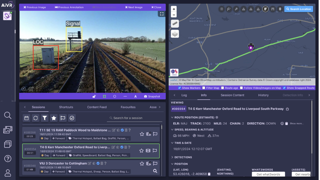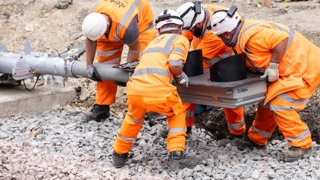London Underground’s scheme to close ticket offices always had the potential for controversy. Cynics would see it as a cost-cutting exercise. The unions would not be happy. Jobs would surely go, passengers would lose valuable contact with staff…
The reason behind the change was simple: simpler ticketing schemes such as Oyster and, most recently, Contactless, meant that demand for manned ticket windows had fallen. But London Underground wasn’t going to abandon seemingly redundant ticket office staff - it would invest in them, give them new skills with the sole purpose of creating a better passenger experience.
Transport Focus’ research shows that passengers want to see visible staff, they like the staff they can get hold of and it makes them feel more secure. So London Underground moved staff from ticket offices and made them far more visible, able to help and reassure passengers.
London Underground formulated a comprehensive and innovative customer training programme for all 5,000 station staff and incorporating interactive learning, classroom-based learning, and interactive learning. Staff gained skills to enhance customer service ability and virtual ticket machine simulations have enabled employees to practice problem-solving, which has been highly effective in up-skilling staff.
All supervisors transferring into customer service management roles now have engaging, individual development plans and, for the first time in 25 years, Transport for London has a competency benchmark for supervisors.
The project has made a positive impact in terms of customer service improvement. Staff have the skills they need to allow them all to provide great customer service. The training programme has resulted in an 80% increase in staff with ticketing qualifications giving them the skills and knowledge to help customers in the ticket hall as ticket offices closed.
Since the learning programme began there have been significant improvements in customer service performance across the Underground network, with all measures either at the same levels or improving.
To prove the success of the scheme, London Underground undertook ‘mystery shopping’ exercises. It found that staff presence for stations has stayed the same or improved, staff attention to customers has stayed the same or improved and staff helpfulness continues to show improvement between pre and post-transformation.
Employees have engaged with the learning so successfully that many have volunteered to become Change Champions: advocates for the programme, helping colleagues adapt to new ways of working.
Judges’ Comments
“One judge ‘stress-tested’ staff availability and ability at two stations (Charing Cross and Marylebone) by making particularly unusual requests. In both cases, the staff member understood the request clearly and was able to expedite the changes required to an Oyster card in a competent, professional, manner with the minimum of fuss. The scheme really puts passengers first and how it was done is an example to the industry.”
















LU Station Supervisor - 24/09/2016 19:49
Your article is a disgrace to journalism. No effort made to talk to tube workers or their union. Training of tube staff is in crisis. Untrained staff running stations and 873 fewer staff on stations. Why don't you just write for LU on house mag and be done with it.